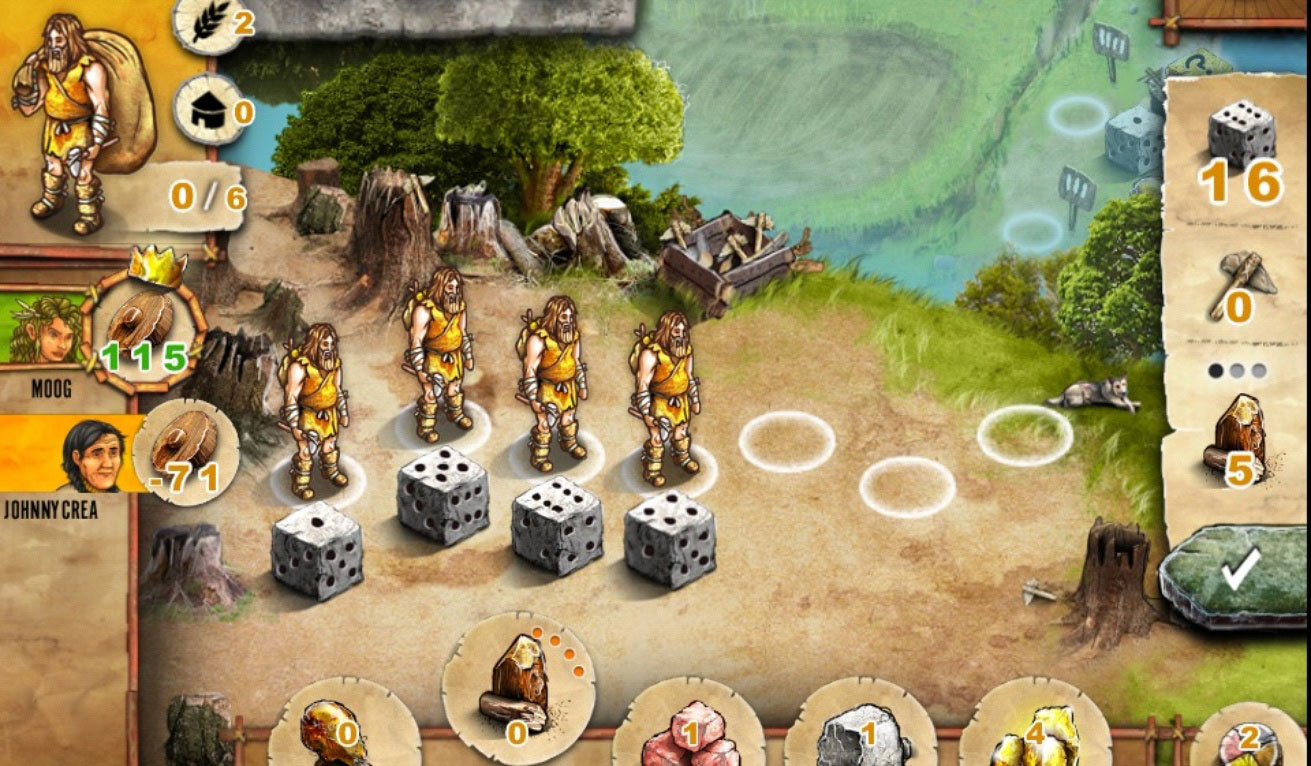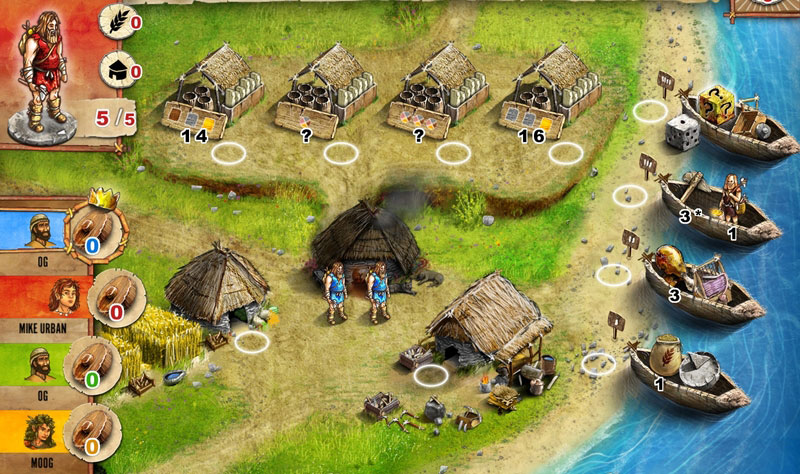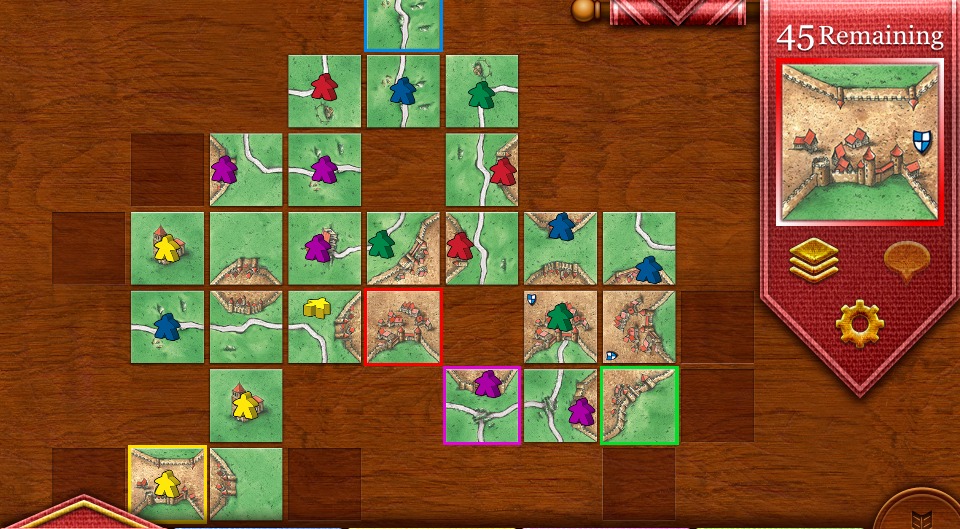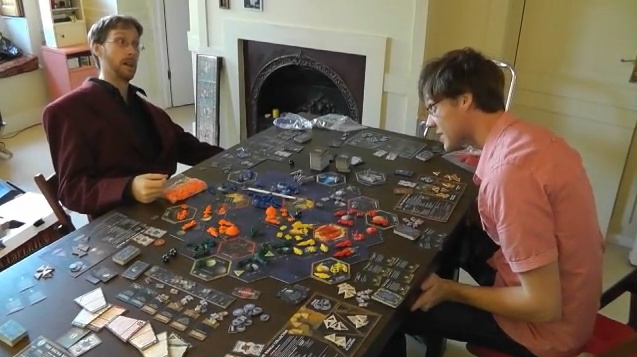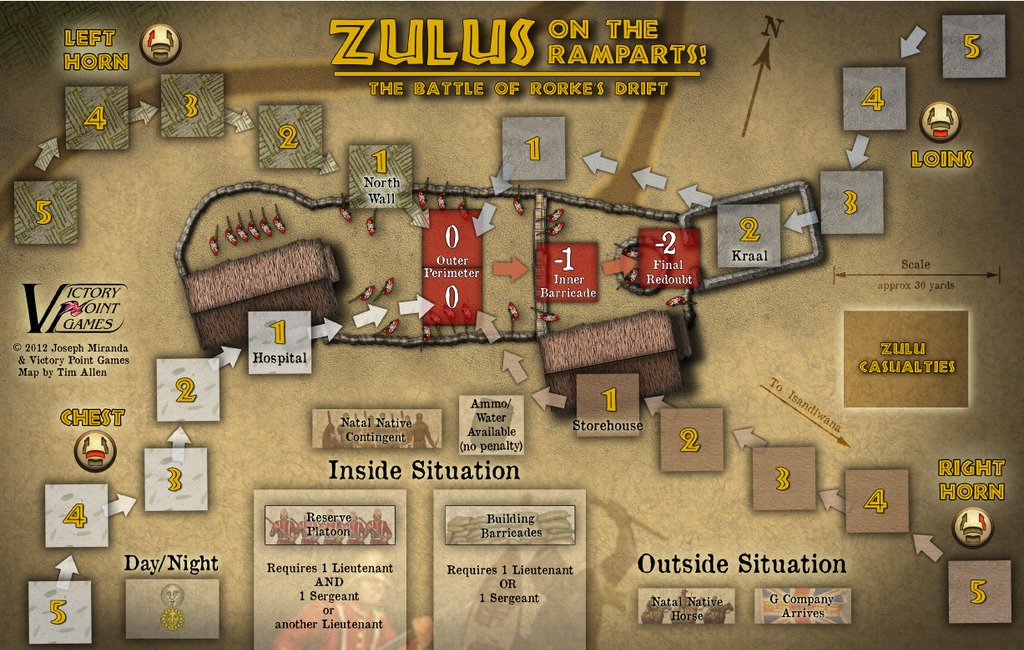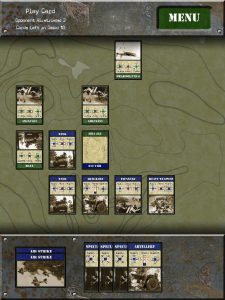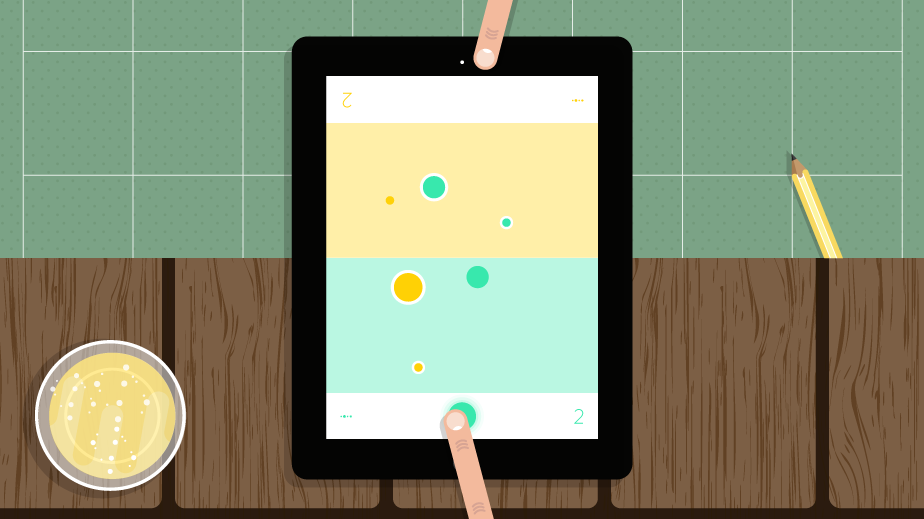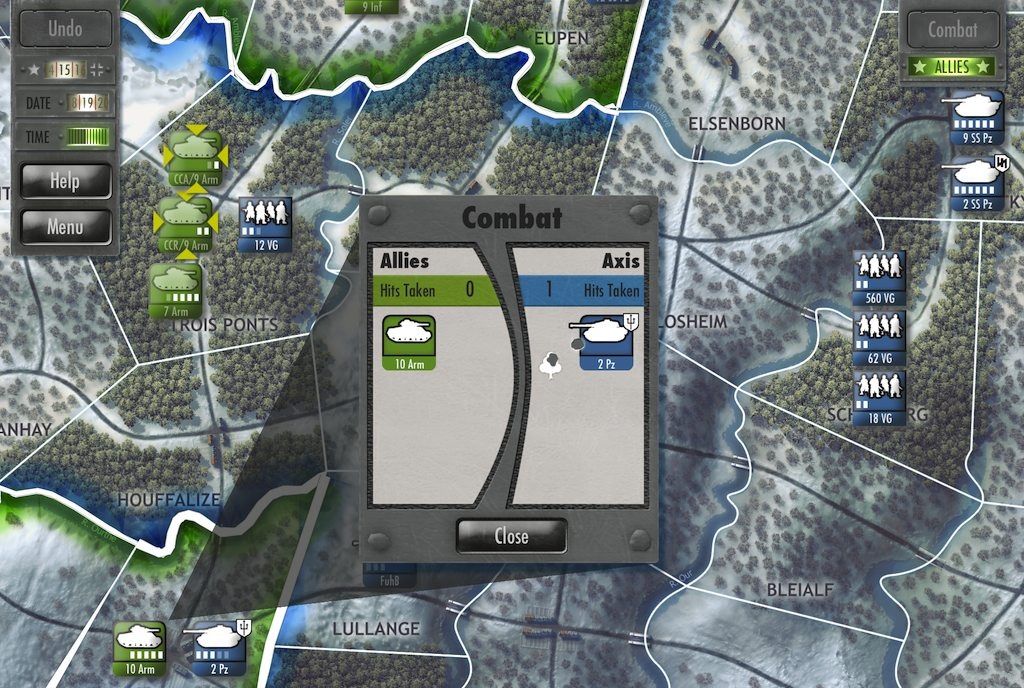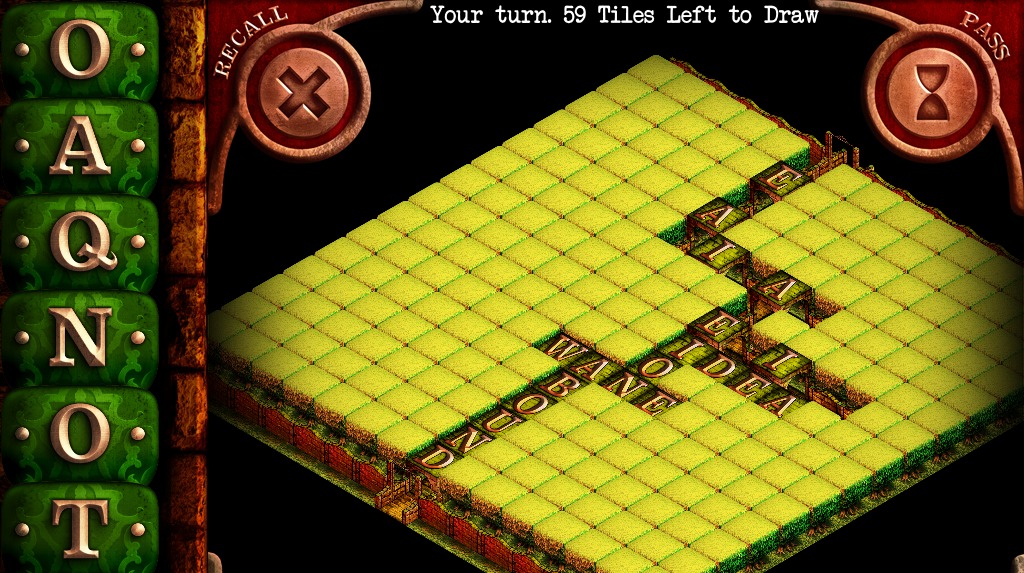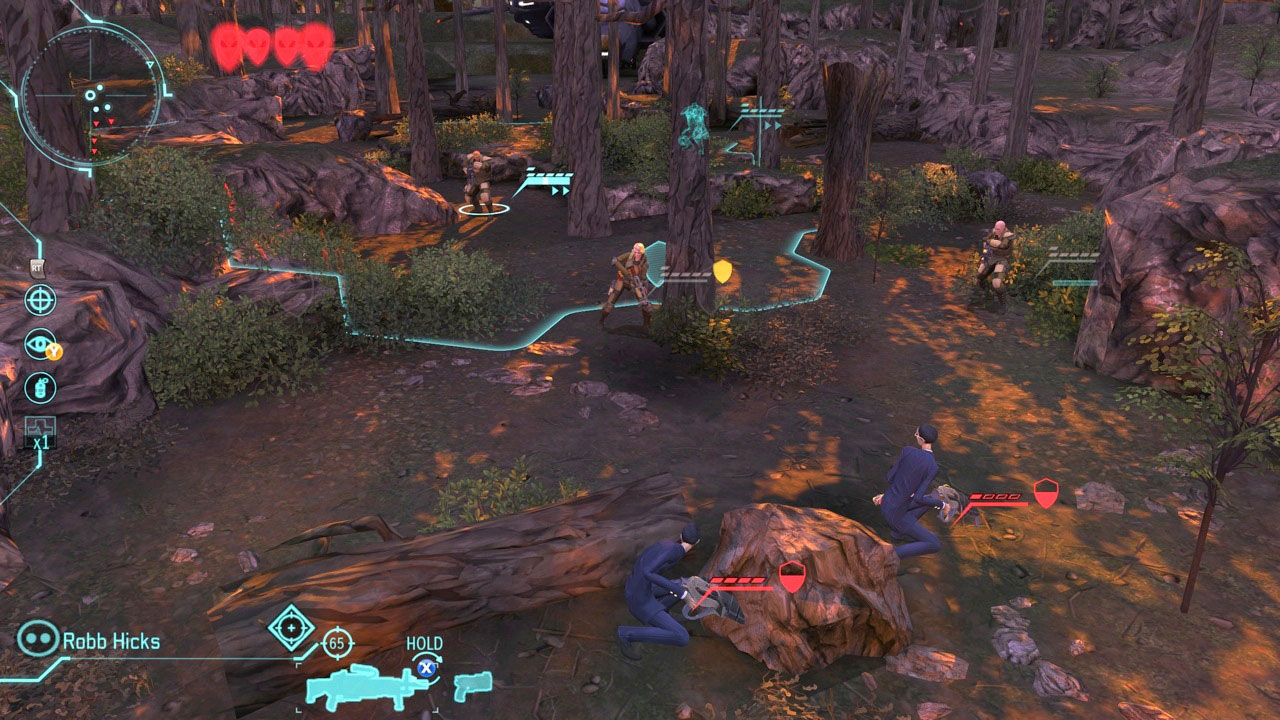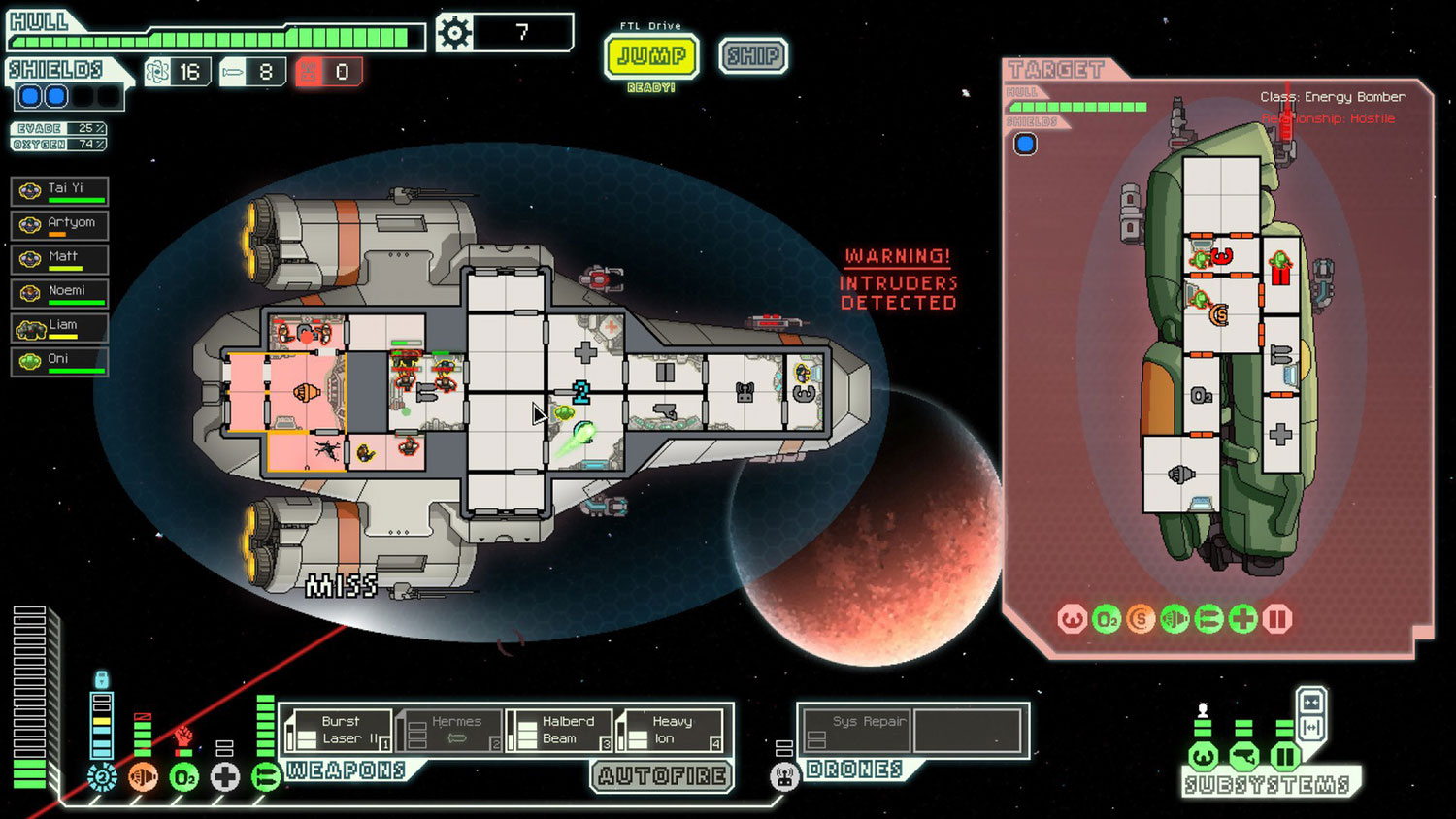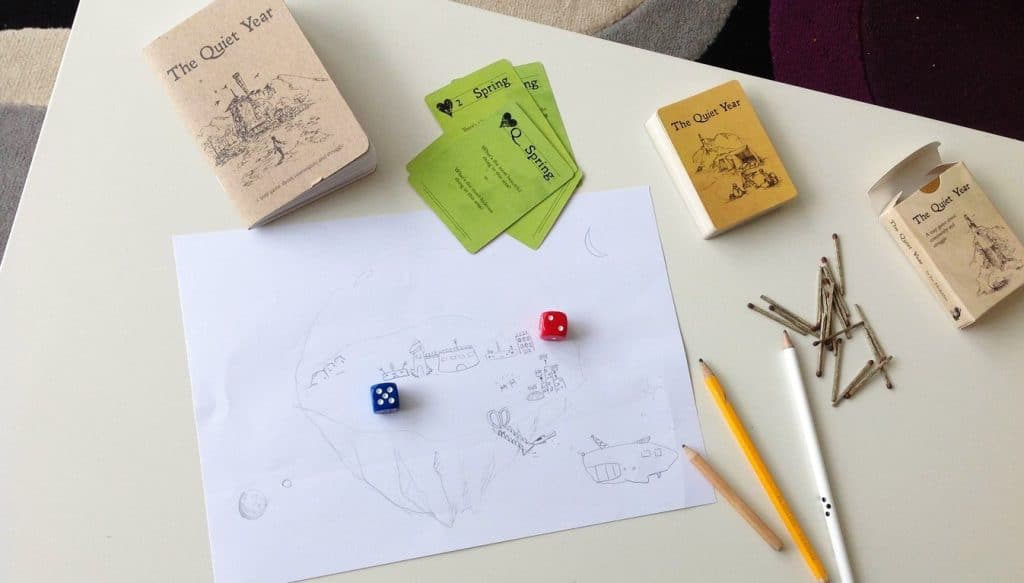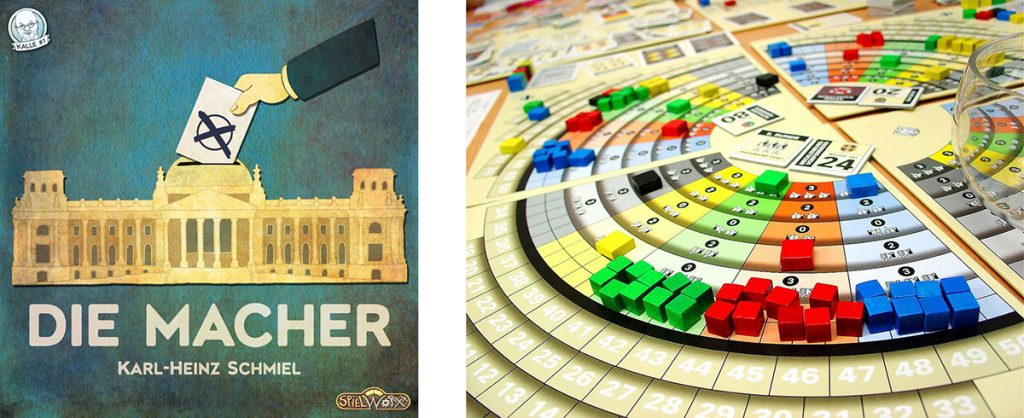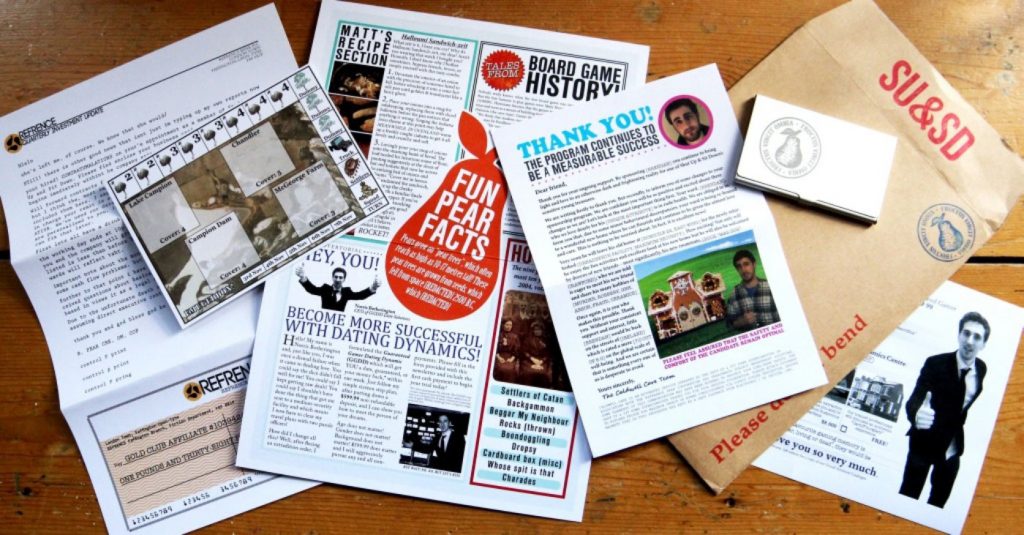Quinns: Hi Tom! I understand you’ve had no electricity. That’s a fitting start for SU&SD’s iOS correspondent. Who’s the man you turn to when the lights are out? It’s TOM O’BEDLAM.
Tom: You’d think, but the batteries went out on my iPad five minutes into the powercut. Without electricity, the iPad is a very ugly mousepad.
Quinns: Awful. So, what have you been playing this week? Was it terrible? iOS ports of board games are terrible, right?
Tom: They’re not that terrible! Most are distinctly unterrible! Not all of them are Dominant Species! I’ve been playing the new iPad release of Stone Age, which has been ported by Campfire Creations. It’s gorgeous. One of the nicest looking ports I’ve seen so far.
Quinns: What am I looking at here?
Tom: Those are two very gruff men being dispatched to the Mating Hut.
Quinns: Excellent. We reviewed Stone Age ages back and came to a mixed conclusion, but if anything was going to change my mind, it’s that.
A top-notch digital port of a board game isn’t just looks though, is it? I’ve long believed this, with my mind.
Tom: Sure, but it really helps.
The major failing point of a lot of real-life board games is that they look dull if you don’t know what you’re looking at, but a good host can win friends over with “Hey, look at these neat cards, this component, that component”, you can flick through decks and let them roll dice to the simple-minded content.
With digital games you don’t have the tactility and presence of the thing, so looks are killer for attracting the new crowd. And it’s totally working.
Quinns: See, this is what coaxed us into doing iOS coverage in the first place. You see couples playing Carcassonne on the train, passing their phone, and it’s like seeing meltwater beneath a frozen lake. These people are table gamers! They just don’t know it yet.
But you say iOS games don’t have tactility. They have their own kind of tactility, don’t they? The importance of sound effects, of components “socketing” into place, the ability to scroll around a board. Does Stone Age do that?
Tom: God yes. I spoke with the devs recently and that was something that they were quite keen on getting right. We had a chat about dice in iOS games and what the relevance is of something like digital dice. I mean, think about it, a die is a random number generator set to 1, 2, 3, 4, 5 and 6. So why not just have dice rolls in games replaced with a flashing number plugged directly into the RNG?
There’s something about the physicality of the cardboard game that you really want to capture, even if you’re making it for gamers that have never played the hard copy of the game.
Another thing that Stone Age does really nicely is screen real estate, which is absolutely vital for iOS devs to start thinking about.
Quinns: Of course. Yes. Absolutely. …what’s that?
Tom: Ok, so what’s the biggest game you own?
Quinns: Twilight Imperium 3rd Edition. A 3-8 player space opera that models everything from hostage exchanges to entire PLANETS bursting like old shoes. We love it. We posted a review of it here, and a Let’s Play here.
Tom: Yeah, and in order to play this behemoth you need approximately three football fields worth of table space, with an option to annex all of your next door neighbour’s horizontal surfaces.
The screen of an iPad 2 is about the same size as a hardback novel. If you tried to cram the entirety of TI on the screen, you’d need an electron microscope to play it. So devs have to break digital board games down, and modularise them. Capitalising on the strengths of digital games for book-keeping, and playing down the absence of an infinite screen.
Quinns: Like a dirty secret.
Tom: Exactly. If you look at the Stone Age app compared with the cardboard, they’re hugely different. And that’s because the devs said, let’s not get bogged down with replication, let’s find a way to show off the GAME as best we can.
Quinns: Swank!
So, that’s this week’s victory. What else has come out? I’ve been playing Zulus on the Ramparts! HD (iPhone Here).
Tom: Oh I read about that yesterday, is it any cop?
Quinns: No it’s basically terrible. If we’re using Stone Age as an example of a good port, Zulus is the other kind.
Tom: On an app as costly as Zulus ($8!), that’s really bad news.
Quinns: Yeah. Victory Point Games do a lot of lightweight wargames, and Zulus looks at the Battle of Rorke’s Drift, in which 150 British soldiers and Michael Caine held off 4000 zulu warriors. It’s a solo game of sweat dribbling down your brow as you try and weigh up putting out fires, with building defences, or dragging another Corporal out of your hospital by his hair.
But never mind the zulus. I ended up more horrified by my encounter with the murky rules, non-responsive interface and loading times.
Tom: On a board game, long loading times are pretty much unforgivable when you consider the tablet’s processing power. That’s just bad programming. You can forgive your aunt for long loading times playing Scrabble, but when something can knock off several thousand long division sums a millisecond, it’s not on.
Quinns: What else have you been playing?
Tom: I’ve been having a bash at The Battle For Hill 218, which is a super short form strategy card game from Large Visible Machine. It’s quite a smart little set of mechanics that look to emulate the difficulties of taking and holding a hill in WW2.
Geography makes War a son of a bitch. Not only do you need to combat the advances of the other general, you need to ensure that your troops are well vittled and watching each others backs. It’s cute, and though I can’t see any long term appeal in it, I think that’s probably fine.
Quinns: But should people buy it?! Let’s face down this question that powers our capitalist society like a flux capacitor.
Tom: That’s a tricky one. The Battle For Hill 218 is $2.99 on the App Store, which feels a bit dear to me compared with other games on offer.
Quinns: Haha. If $3 sounds dear to you, that’s pretty damning.
Tom: I know, I feel awful. How have we reached a point where I can write off a nicely made game that costs less than a sandwich? In truth, if you like Carcassone and similar games, give this a look, it’s just not for me.
Quinns: I’ve got something people should buy! It’s called OLO and it’s actually amazing.
Now I haven’t played Crokinole, despite it having mythical status in the board game community. I don’t know how to play it, and I’ve reacted to all the wooden Crokinole boards I’ve encountered in my travels not unlike how my mum might respond to someone’s fetish gear. “Oh! My goodness! That looks… nice?”
That said, I’m confident that OLO is the iPad and iPhone’s own Crokinole. Players try and flick pucks into their opponent’s scoring area. If it goes any further, your opponent gets the puck. And as the playing area fills up, options fill out to do with knocking pucks, or blocking your opponent off. It’s incredibly well made, and absurdly tense. Just incredible.
Tom: Cute, so it’s like boules or pentaque and air hockey?
Quinns: Yes. Except the fun of them isn’t somewhere in the middle, but COMBINED. This is dark game science. Like, if you stare at the source code you can hear Tesla’s voice and get a nosebleed.
I’ve also been playing Battle of the Bulge, which is as traditional as OLO is modern. Do you like tanks, Tom? What about taking control of bridges?
Tom: I love tanks. I think. It’s either tanks or dinosaurs I love, can’t remember which. I LOVE taking control of bridges though.
Quinns: Tank on a bridge? Or dinosaur under a bridge? WHAT AM I TALKING ABOUT ok so Battle of the Bulge is a fairly underwhelming wargame that isn’t based on a board game, and you can tell, because what’s otherwise quite a simple game of maneuvering is kneecapped by a lot of random chance. You almost want to flick the screen of the iPad and see if you can coax some more game into motion, like a fish tank.
What it is, though, is a tour de force of how wargames should feel on the iPad. The map, units, territory control, the menu, it’s almost enough to coax you through round after round of the game. I’d actually recommend it if people wanted something pretty to play with.
There was one last game you wanted to talk about, wasn’t there?
Tom: Yeah, just a quick one. Lexit. Unfortunately, everyone missed the free download time for it, as they started charging on Sunday and you’re going to have to pay a whole 99c for it. So here’s a cool idea for a game, you take Scrabble and its imitators, and try to make a game about trench warfare.
Quinns: Of course. Wait, what?
Tom: That was my response. The idea is that you and your opponent are trying to building your trenches to the opposite side of the board, using vertical words to strike into enemy territory and horizontal words to create defensive lines. The catch is that you can only cross your opponent’s word if you pass through a vowel. So vowels are bridges and consonants are trenches. Oh and the whole thing takes place in the canopies of a forest, I think. If you enjoy word games, totally check this out.
Quinns: Sold. Can I go and have breakfast now.
Tom: WE’RE NOT FINISHED. I also have some news! Super cool news that I’m a little bit giddy about. Also, it’s nearly one o’clock, you layabout.
So we’ve known for about a month that Space Hulk was being released on iOS and OMG OMG OMG SPACE HULK SPACE HULK, and I’m not actually able to articulate how excited I am about that. Not with real words, not that make sense. But that’s actually been superseceded by even cooler news.
Quinns: Impossible!!
Tom: Brace yourself. My two favourite games on PC released last year have just been announced as coming to iOS. XCOM and FTL. I’m going to try and explain FTL in a second, but in the mean time here’s Jake Solomon talking about XCOM iOS
Right?
Now, Quinns, when XCOM came out we discussed its boardgameyness, didn’t we?
Quinns: Well, actually the designer discussed its boardgameyness first. How he began by building the game on paper, to make sure the mechanics were robust and healthy.
Tom: Quuiiiiiiiinsss, let me be a visionary. I am the boardgame oracle!
Quinns: LET ME HAVE MY BREAKFAST.
Tom: Fine! So the deal is that XCOM was built as a board game, designed as a board game and it played like I dreamed boardgames in the future would be played. That it’s coming to iOS just makes so much sense. Hopefully this is one step closer to us getting to play an actual boxed copy of XCOM the boardgame.
Quinns: Sweet. Which brings us to FTL, the definitive game about having a Bad Time In Space. Which, like so many disaster-driven board games, is actually a great time.
I played the PC version- you’re flying a disturbingly flammable ship on a quest to warn your superiors that a rebel fleet is coming, trying to scratch together upgrades and crew for your ship on the way. Upgrades that will turn out to be a bad idea, and crew who’ll die as horrible mantis aliens beam aboard.
But is it a board game? I guess it basically is. You’re having random encounters, dividing up power and upgrade points.
Tom: It’s Space Alert really, isn’t it? They’ve folded the turn-based resolution into the real time phase, there’s just slightly less shouting.
Quinns: My elbow’s acting up. You know what that means. We’re straddling the dimensions of videogames and board games again.
Tom: We’ve crossed the streams!
Quinns: Quickly! Let’s sign off.
Tom: I’M NOT FINISHED
Quinns: I AM SO HUNGRY
Tom: A couple of weeks ago Wizards of the Coast announced that they’re partnering with Playdek to publish iOS versions of the Dungeons and Dragons titles! Which is a thing. And that’s us for the week.
Quinns: Oh. We’re done? Just like that?
Tom: …

